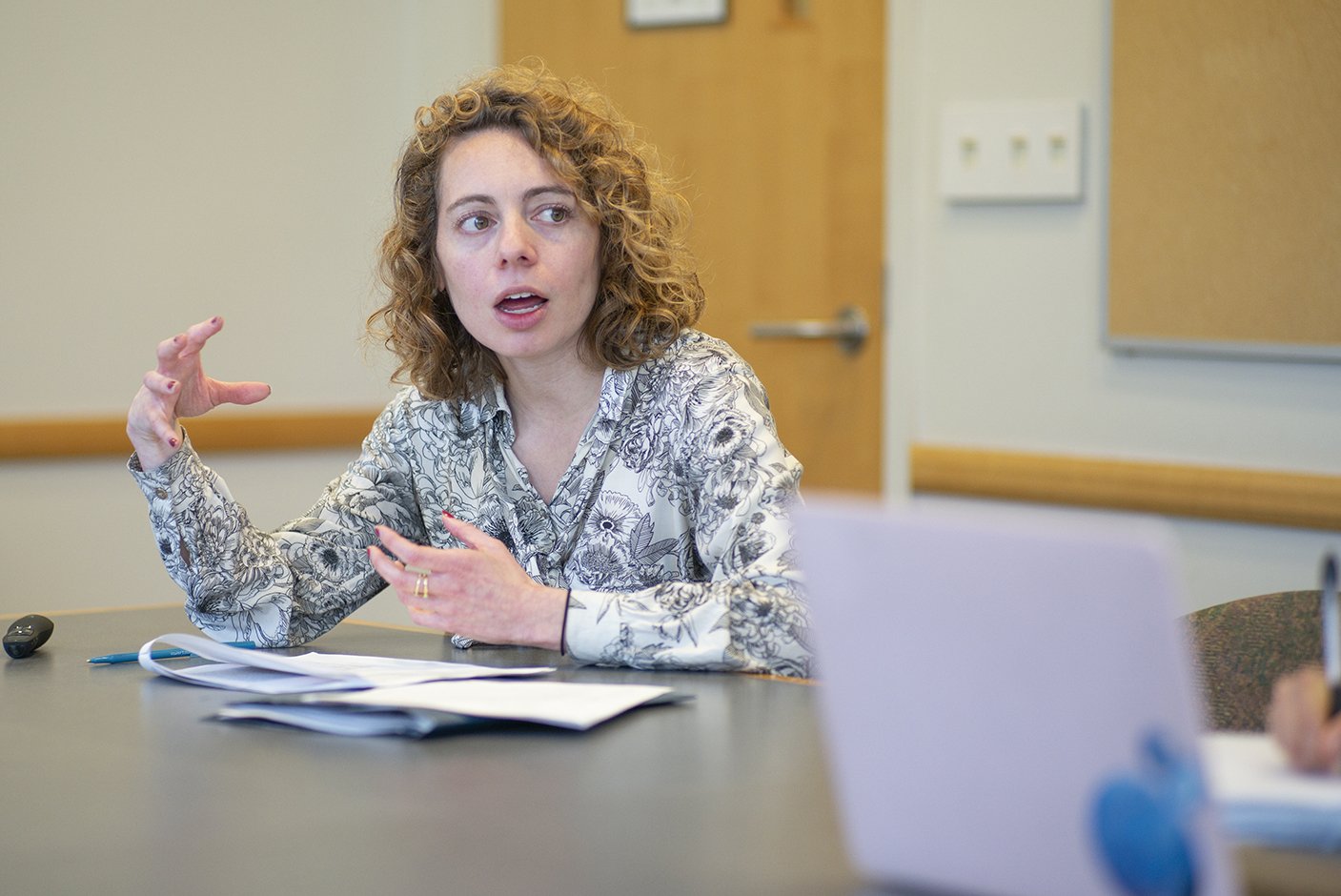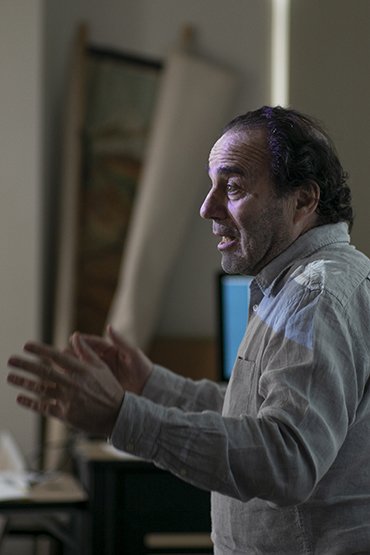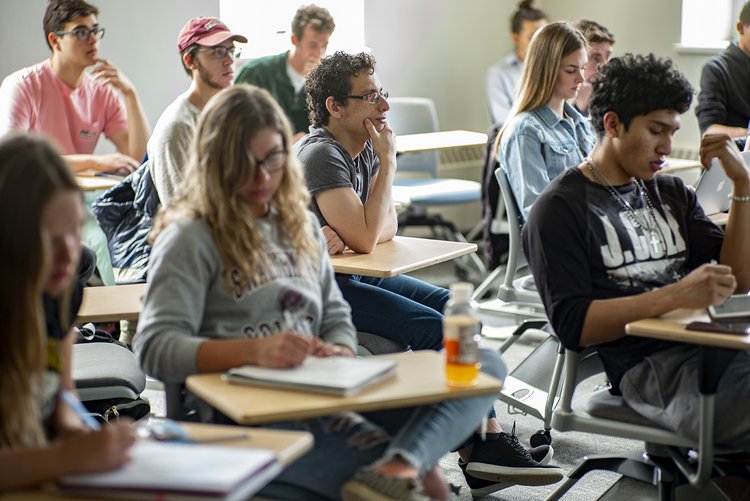Academic Program

What is History?
The discipline of history is a method of analysis that focuses on the contexts in which people have lived, worked, and died. Historians interpret the past based on the critical assessment of written, oral, visual, aural, and any other material evidence and are in constant dialogue with what other historians have written. Historical scholarship enables us to not only know what occurred in the past but also to understand the thoughts, cultures, institutions, and behaviors of people living in different times and places, thereby allowing us to uncover continuities and disruptions of patterns that characterized the human experience before our time. The study of history not only allows us to recover the details of individual lives and societies in the past, but it also provides the knowledge that allows us to be engaged citizens in a global context by fostering respect for other cultures and peoples.
Overview of Curriculum

The History Department’s curriculum cultivates the understanding of historical methods and the fundamentals of historical thinking, research, and writing. All of our courses and seminars expose students to the contested nature of historical scholarship and provide the skills needed to understand and interpret the past. We believe it is critical to nurture students’ historical understanding of the past through first-hand exposure to primary sources and evaluation of the respective arguments of historians. In all courses and seminars, faculty members involve students in the process of historical discovery and interpretation and stress that all historians are engaged in the constant sifting of old and new evidence.
Each faculty member has a specific area of geographical and temporal expertise in a particular kind of historical inquiry. But each faculty member also focuses on broad and wide-ranging themes and topics that extend beyond any one region or time period. Some study social, cultural, and political movements; others explore the impact of race and ethnicity; still others examine the history of empires, material culture, ideas, sexuality, and gender. Despite these variations we all share a commitment to a global and comparative approach to the study of history and a common pedagogical concern for promoting a critical understanding of the past.
History courses are an intrinsic element of many multidisciplinary programs such as Asian Studies, Black Studies, Gender and Sexuality Studies, German Studies, Global Studies, Interpretation Theory, Islamic Studies, Latin American and Latino Studies, Medieval Studies, and Peace and Conflict Studies. Students interested in these programs should consult the catalog for these programs’ requirements and course offerings.

Majoring and Minoring in History
Course Types
-
Introductory Courses: Surveys and First-Year Seminars (001-010)
-
These courses serve as a gateway to the major by introducing students to the discipline of history and fostering their ability to think, read, and write historically. They prepare students for upper-division courses, which are predicated on prior exposure to the practice of history.
Surveys provide broad overviews of particular times and places in the historical past, but they all focus on major issues of interpretation, analysis of primary sources, and historical methodology. First-year seminars (History 001A-001Z) are limited to twelve students and explore specific historical issues or periods in depth in a seminar setting.
-
Historical Methodology and Theory Courses
-
These courses expose students to the diverse nature of history as an academic discipline. They explore the methodological and theoretical concerns of historians and focuses on how they conceive of their projects; how they develop questions that guide their research, writing, and analysis; how they use primary sources to guide their work; how they shape narrative accounts of their projects; and what are the merits and drawbacks of their respective approaches to history. All majors must take this course before the end of their junior year.
-
Upper-Division Courses (011-090)
-
Upper-division courses are categorized by concentrations that provide depth and breadth to the study of history and address key topics and themes that occupy the attention of historians. Cutting edge historical scholarship tends to fall into at least one of the following concentrations: capitalism; culture and identity; domination and resistance; empire and nations; science and medicine.
Please note that some upper-division courses also satisfy the requirement for a methodology or theory course.
-
Senior Research Seminar (History 91)
-
The History Department’s Senior Research Seminar (History 91) serves as the major’s capstone course and provides students with the opportunity to employ their skills as historians as they write an extended essay based on primary and secondary sources. This course satisfies the College’s requirement that all majors have a culminating exercise and is offered only in the fall semester. The Department encourages students to consult faculty members by the end of their junior year and select their topic prior to the first meeting of the Senior Research Seminar.
We encourage students to use the rich collections of the Swarthmore College Peace Collection and Friends Historical Library, both located in McCabe Library. The Peace Collection houses an unparalleled collection of antiwar and disarmament materials, including those of many prominent social activists. The Friends Historical Library possesses one of the richest collections of manuscripts and printed source material on Quaker history. The holdings of other institutions in the greater Philadelphia area, such as the Hagley Museum and Library (Wilmington, DE), the Library Company of Philadelphia, and the American Philosophical Society are also accessible to the student-researcher. In addition, we encourage students to use on-line archival collections such as the National Security Archive.
-
Double-credit Seminars (100+)
-
Double-credit seminars are small courses in which students take responsibility for discussions and comprehensive understanding of the material. The instructor helps facilitate discussions but does not necessarily take a leading role in the learning process. These seminars tend to focus on specific fields of historical inquiry such as gender and sexuality in the United States; slavery; reform and revolution in Latin America; the Enlightenment and European intellectual history; political economy of the Modern Middle East; supranational institutions in Europe; colonialism in Africa; women and gender in China; and the Russian revolution.
Entry into double-credit, honors seminars must be requested through the Department Chair. Our honors seminars are open to students’ applications usually after they have taken two history courses and earned grades of B+ or higher.
-
Language Attachment
-
Certain designated courses offer the option of a foreign language attachment, normally for 0.5 credit. Arrangements for this option should be made with the instructor at the time of registration.
Students who intend to continue the study of history after graduation should bear in mind that a reading knowledge of one or two foreign languages is generally assumed for admission to graduate school.


